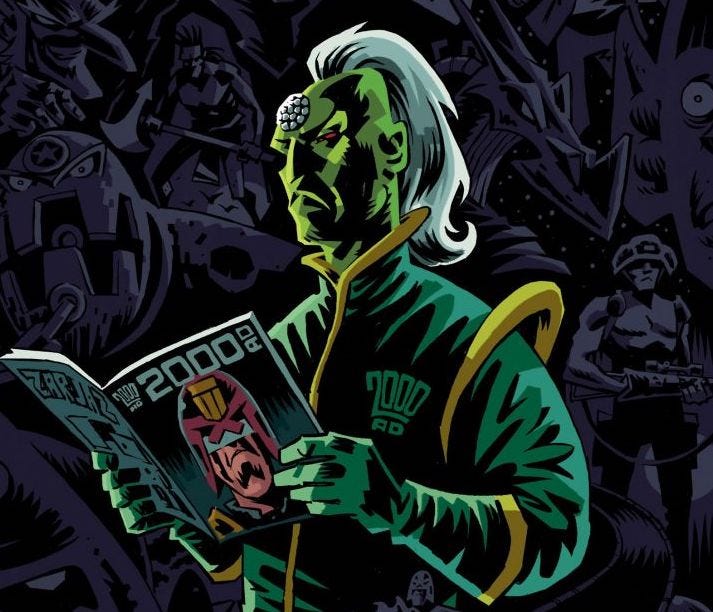My Future Shock Hell! (Chapter 2 of 4)
How to survive the submissions process (whether that's comics, novels, shorts, or screenplays) by rejection-proofing your soul
In Chapter One of My Future Shock Hell! I revealed how the legendary British sci-fi anthology 2000 AD became my first port of call when I decided that I wanted to ‘break in’ to comics.
READ: My Future Shock Hell! (Chapter 1 of 4) How I broke into comics and why there's no such thing
Almost twenty years on and still making cold submissions …


